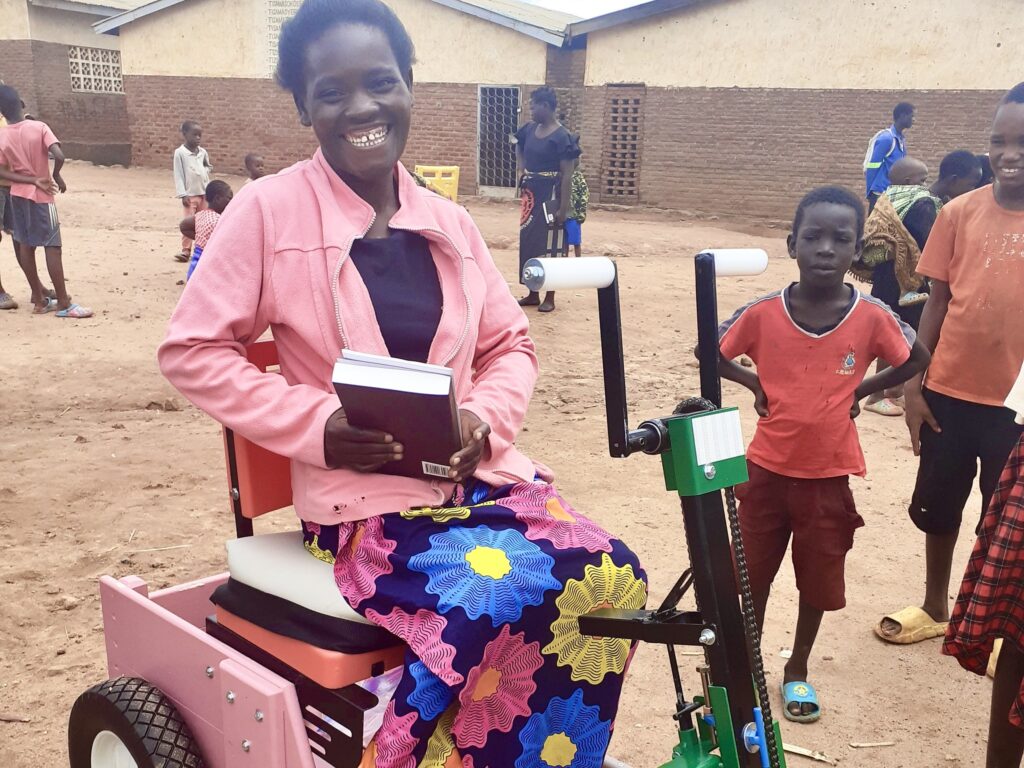Kachikho 2 Village, Lilongwe, Malawi … Malaria is serious in sub-Saharan Africa, but as serious as regular malaria is, cerebral malaria is even worse. The potential for death from this form of malaria is extremely high.
Without treatment, cerebral malaria is nearly 100% fatal. With proper treatment of antimalarials the mortality rate decreases, yet even then it is fatal in 15%–20% of cases. Short of dying from cerebral malaria, the lasting effects of brain disorders, including paralysis, affect large numbers of people for the rest of their lives.
Malaria is more than a name for 38-year-old Teleza Kanyedule from Kachikho 2 village in Lilongwe. Her parents have told her it is the source of her mobility issues. They say she was born very healthy, but it was after a year that she contracted cerebral malaria. Suddenly everything was different. Health issues moved to the forefront with her legs being most affected. She remembers her parents telling her they did everything they could do, taking her from one hospital to the next, all to no avail. They tried every medication possible, but again nothing worked.
She recalls how her mobility issues caused her to suspend her schooling, and how much, even today, it impedes her ability to earn enough money to buy basic food items for her husband and family. She noted so much of her business income has been consumed by the cost of hiring bicycle taxis to get around. Now that is all changing.
On this particular day,Teleza dressed up at her very best, anticipating a special outcome from her meeting with the representatives from Action for Progress. Holding a brand new Bible, given to her through contributions from supporters, she posed for pictures on her new pink mobility unit. The unit and her attire were a perfect match, and with the day’s events she was not disappointed.

